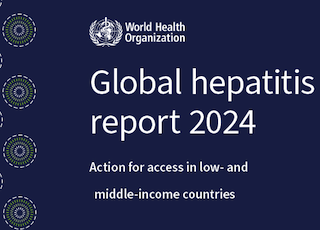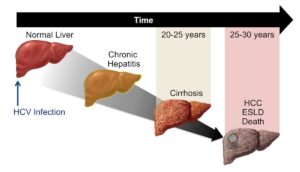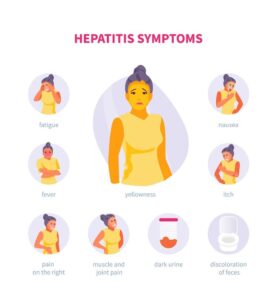Global Hepatitis Report 2024: Addressing Viral Hepatitis Threat
Global Hepatitis Report 2024 Findings
The Global Hepatitis Report 2024 reveals alarming findings about the rising impact of viral hepatitis worldwide. With 1.3 million lives lost annually, hepatitis stands as a major global health concern alongside tuberculosis. The report emphasizes the critical importance of addressing this issue promptly. Despite progress in diagnostics and treatment options, testing and treatment coverage have stagnated. By taking immediate action and raising awareness, we can work towards achieving the WHO’s goal of eliminating hepatitis by 2030.
The recent data from 187 nations reveals a concerning surge in hepatitis-related deaths, increasing from 1.1 million in 2019 to 1.3 million in 2022. Of these fatalities, 83% were attributed to hepatitis B, while 17% were due to hepatitis C. Every day, approximately 3500 individuals succumb to hepatitis B and C infections globally. Dr. Tedros Adhanom Ghebreyesus, Director-General of the WHO, expressed alarm at this trend, emphasizing the urgent need for improved diagnosis and treatment to reverse the rising death toll.
In 2022, an estimated 254 million people were living with hepatitis B and 50 million with hepatitis C worldwide. Half of the cases are found in individuals aged 30-54, with 12% affecting children under 18 years old. Men constitute the majority of cases at 58%. While there has been a slight decrease in new infections compared to 2019, with 2.2 million new cases reported in 2022 (1.2 million hepatitis B and nearly 1 million hepatitis C), the overall incidence of viral hepatitis remains high.
Moreover, preventive measures such as vaccination, safe injections, and expanded treatment options for hepatitis C have contributed to reducing the incidence rate. However, ongoing efforts are needed to address the persistent challenges in diagnosing and treating individuals with hepatitis to curb the global impact of this disease.
Global advances and gaps in diagnosis and treatment
The Global Hepatitis Report highlights significant gaps in diagnosing and treating chronic hepatitis B and C worldwide. Despite some progress since previous estimates in 2019, current figures fall short of the global target set for 2030. Notably, only a fraction of individuals have received necessary antiviral therapy or curative treatment. The burden of viral hepatitis varies across regions, with specific countries carrying a substantial portion of cases. Efforts must be intensified in key regions like Africa and targeted countries such as Bangladesh, China, India, Nigeria, and others to achieve universal access to prevention and treatment by crucial deadlines. Realignment with Sustainable Development Goals is essential for addressing this pressing global health issue effectively.
The Global Hepatitis Report outlines crucial actions needed to combat viral hepatitis worldwide and achieve eradication by 2030. These actions focus on expanding access to testing, implementing equitable treatment policies, strengthening prevention initiatives, and optimizing service delivery. However, funding remains a challenge due to limited awareness of cost-effective interventions and competing global health priorities. The report emphasizes the importance of addressing these gaps to ensure equitable access to essential tools at affordable rates.
Payvand Clinical & Specialty Laboratory stands ready to provide top-quality routine and molecular tests promptly to support efforts in combating hepatitis globally.




